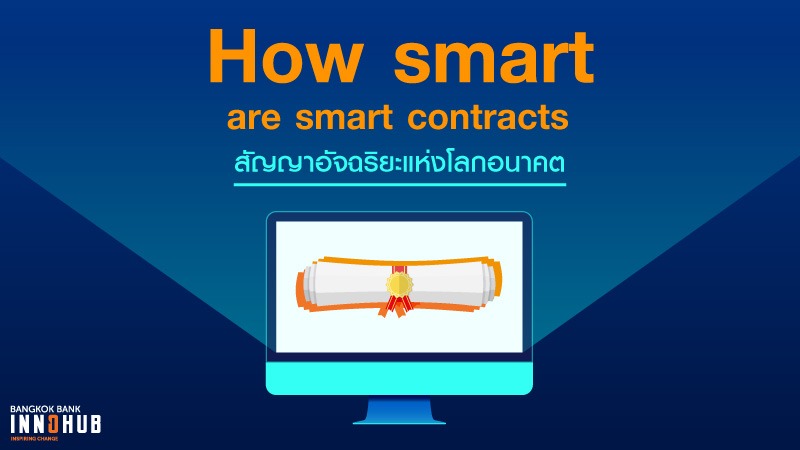How smart are smart contracts?
To make paper contracts legally binding traditionally requires that all parties mutually agree on the terms and conditions, sign the paper document and submit it to relevant agencies. Each step takes time and it can take anything from a couple of hours to a few months to finalize the contract depending on approval processes. In addition, printed documents can be lost or tampered with along the way.
Nick Szabo, a cryptographer, first pioneered the idea of using blockchain-powered “smart contracts” to overcome these challenges in the late 1990s. He developed the concept of using a set of computer-coded rules or promises that can automatically enforce the contract when appropriate conditions are met.
Blockchain technology and the embedded computer code not only records and manages the terms and conditions of the contract, it also creates a permanent digital record of it. Smart contracts also overcome a number of limitations faced by traditional paper contracts as they eliminate the need for middlemen, a range of fees, bureaucratic verification processes, and the time and cost to manually manage the process. Smart contracts are already being used in a wide range of applications from car purchases to insurance applications, because of the high levels of transparency and traceability they provide.
International organizations are already using smart contracts worldwide. For example, Fizzy smart insurance enables travelers to easily complete their application form and fee payment to secure cover five days before their departure date. If their flight is delayed by more than two hours, travelers automatically and instantly receive compensation. Previously this was a lengthy, manual process which required claimants to fill in more forms or contact their insurer, after which they would have to wait
a reasonable amount of time to be paid. In Thailand, some companies have started using smart contracts where parties use blockchain technology to digitally co-sign agreements.
Smart contracts offer great potential to remove many of the pain points people experience with paper contracts. As with all agreements, however, people should be cautious, especially given that smart contracts are a relatively new technology. Poorly coded smart contracts, or those with flaws in their design, could result in significant problems and losses. Even Vitalik Buterin, the inventor of Ethereum Blockchain, warned the public to be prudent by limiting the value of smart contracts to no more than US dollars 10 million. Furthermore, people or companies wanting to use smart contracts should first become knowledgeable of the laws governing contracts in general and those relating to blockchain and other relevant technologies.
Learn more >> EMV, the New Payment System for BTS Users




